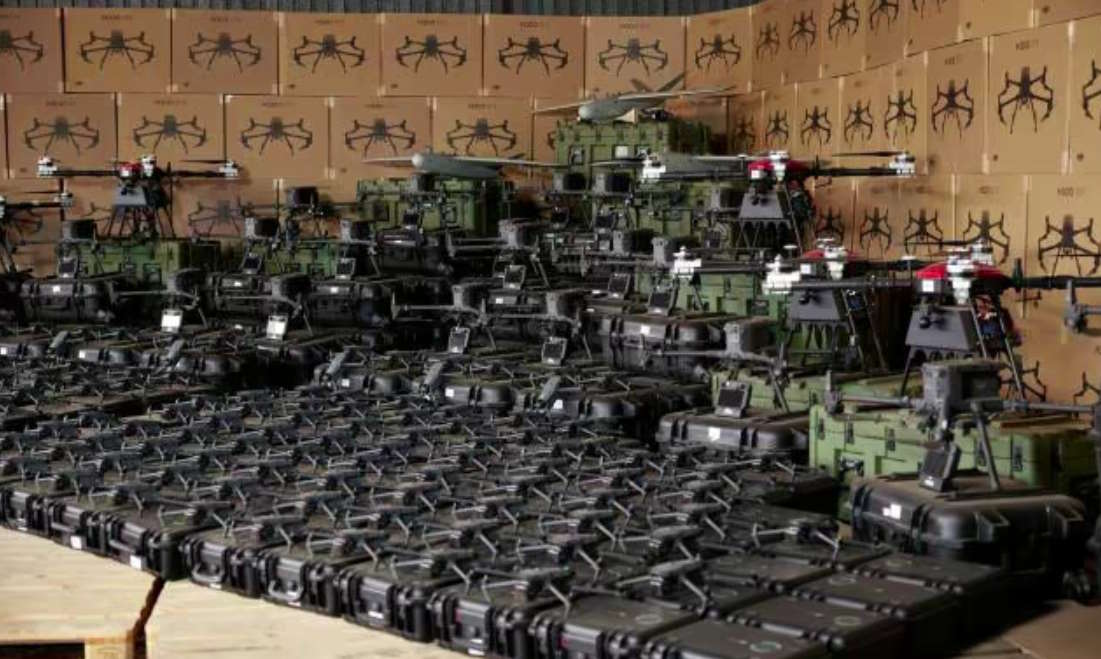Ukraine has shown that artificial intelligence (AI) is already delivering military advantage in conflict and the Ministry of Defence (MOD) should embrace the change AI is bringing to defence, a report by the Defence Committee has found.
Chair of the Sub-Committee on Developing AI capacity and expertise in UK Defence, Emma Lewell-Buck MP, said:
“Artificial intelligence in defence is here to stay – the UK must move fast to avoid falling behind.
“The use of AI in Ukraine shows that it offers serious military advantage on the battlefield, and as AI becomes more widespread and sophisticated, it will change the way defence works, from the back office to the frontline.
“Harnessing AI for defence requires not just updated technology but an updated approach, and in today’s report, we call on the Ministry of Defence to transform itself into an ‘AI-native’ organisation, fully integrating AI into its work and mindset.
“Our report finds that the UK is ripe with opportunity and has the potential to become world-leading in Defence AI. But if we are to realise this potential, the Ministry of Defence must take a proactive approach and nurture the UK’s industry. While the UK’s Defence AI sector may not compete with the USA and China when it comes to scale, we can offer valuable specialism and sophistication.
“Our inquiry discovered a gap between the Ministry of Defence’s rhetoric and reality on AI. While the department acknowledges the importance of AI, these words have not been borne out by action. With the global threat picture ever-worsening, and the pace of technological change moving at a rapid speed, the Ministry of Defence has no time to lose.
“The Government’s Strategic Defence Review is an opportunity to modernise defence. In order to do this, it must reflect the new reality of an AI-enabled world.”
MOD’s mismatched “rhetoric and reality” on AI capabilities
The report highlights a gap between the MOD’s rhetoric on AI and the reality: while MOD policy documents talk about AI as a transformative development, the department does not behave as though this is the case. Too often AI is still treated as a novelty rather than as something that will soon be a core part of defence’s toolkit, and while the Defence AI Strategy correctly identifies the potential for AI to transform defence it offers few specifics on how this will be achieved.
The Committee calls for the MOD’s “say-do” gap to be closed, and for the MOD to become an “AI native” organisation, with AI a core part of the department’s toolkit. The ongoing Strategic Defence Review offers an opportunity for MOD to accelerate this change.
MOD must develop UK Defence AI Industry to be “first-class”
The report finds that the UK has natural strengths that could allow it to develop first-class specialisms in Defence AI, but the sector is at present under-developed and needs cultivating.
The Committee calls on the MOD to identify the gaps in the UK’s Defence AI sector, including in digital infrastructure, data management and the AI skills base. The report finds that the MOD has not provided a clear enough signal to industry on the type of AI the department is interested in acquiring or clear signposts for business opportunities.
The MOD is likely to need to work with smaller and non-traditional defence suppliers. The Committee urges the MOD to overcome the barriers that currently prevent such companies from working with Defence, such as complex procurement processes and difficulties obtaining security clearance for staff.
The report identifies a culture clash, with the tech industry adopting a “fail fast” mindset and model of rapid, iterative development. The Committee calls on the MOD to become more comfortable with rapid change, more open to experimentation and risk, and more able to deploy and iterate cheaper, disposable, software-led solutions on faster timelines.
AI interoperability with allies
The UK’s Defence AI systems will be most effective when interoperable with NATO and AUKUS allies. The report calls for dialogue over shared approaches to data collection and labelling and the ethical use of autonomous technologies, and joint working on skills and capacity building.
Further information
Related
Discover more from sUAS News
Subscribe to get the latest posts sent to your email.

